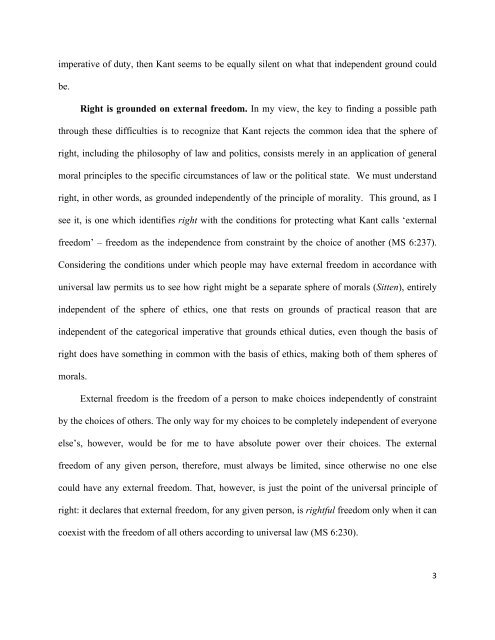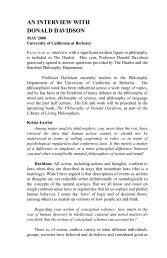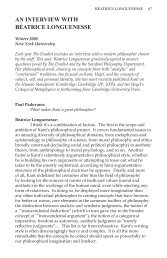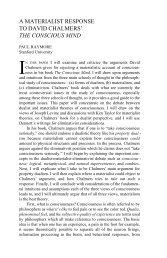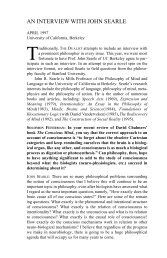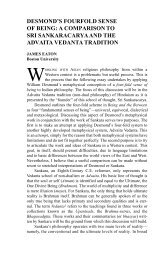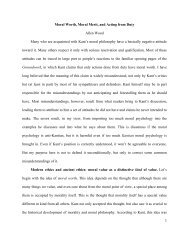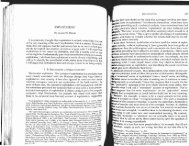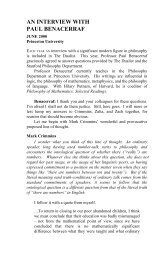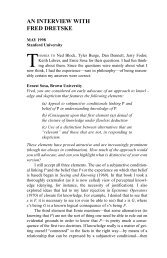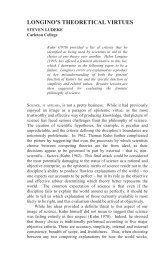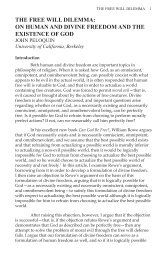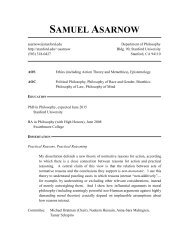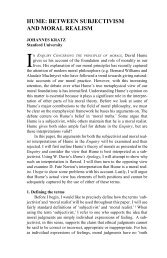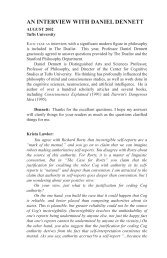The Independence of Right from Ethics Allen Wood Right and ethics ...
The Independence of Right from Ethics Allen Wood Right and ethics ...
The Independence of Right from Ethics Allen Wood Right and ethics ...
You also want an ePaper? Increase the reach of your titles
YUMPU automatically turns print PDFs into web optimized ePapers that Google loves.
imperative <strong>of</strong> duty, then Kant seems to be equally silent on what that independent ground couldbe.<strong>Right</strong> is grounded on external freedom. In my view, the key to finding a possible paththrough these difficulties is to recognize that Kant rejects the common idea that the sphere <strong>of</strong>right, including the philosophy <strong>of</strong> law <strong>and</strong> politics, consists merely in an application <strong>of</strong> generalmoral principles to the specific circumstances <strong>of</strong> law or the political state. We must underst<strong>and</strong>right, in other words, as grounded independently <strong>of</strong> the principle <strong>of</strong> morality. This ground, as Isee it, is one which identifies right with the conditions for protecting what Kant calls ‘externalfreedom’ – freedom as the independence <strong>from</strong> constraint by the choice <strong>of</strong> another (MS 6:237).Considering the conditions under which people may have external freedom in accordance withuniversal law permits us to see how right might be a separate sphere <strong>of</strong> morals (Sitten), entirelyindependent <strong>of</strong> the sphere <strong>of</strong> <strong>ethics</strong>, one that rests on grounds <strong>of</strong> practical reason that areindependent <strong>of</strong> the categorical imperative that grounds ethical duties, even though the basis <strong>of</strong>right does have something in common with the basis <strong>of</strong> <strong>ethics</strong>, making both <strong>of</strong> them spheres <strong>of</strong>morals.External freedom is the freedom <strong>of</strong> a person to make choices independently <strong>of</strong> constraintby the choices <strong>of</strong> others. <strong>The</strong> only way for my choices to be completely independent <strong>of</strong> everyoneelse’s, however, would be for me to have absolute power over their choices. <strong>The</strong> externalfreedom <strong>of</strong> any given person, therefore, must always be limited, since otherwise no one elsecould have any external freedom. That, however, is just the point <strong>of</strong> the universal principle <strong>of</strong>right: it declares that external freedom, for any given person, is rightful freedom only when it cancoexist with the freedom <strong>of</strong> all others according to universal law (MS 6:230).3


